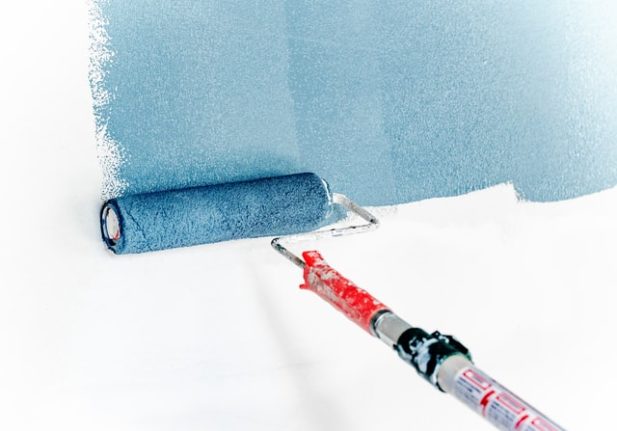My tenancy in Austria is coming to an end, and my landlord has told me I need to repaint the walls of the apartment before I go in order to get my deposit back. Sure enough, it’s in my rental contract. What are the rules about this?
Renters in Austria have quite a high level of legal protection, so if you’re ever told something by a landlord that doesn’t sound quite right, it’s always worth checking your rights.
The basic principle for handing back a rental apartment is that you should give it back in the same condition you received it in, allowing for basic wear and tear as caused by normal use. That means that things like small marks on flooring and walls, as well as holes where you might have put up pictures or art, are completely allowed.
READ ALSO: How to find out if you are paying too much rent in Vienna
But it’s not uncommon to see a clause in rental contracts stating that the tenant must repaint the walls when they leave. Sometimes there might be additional stipulations, saying the painting must be carried out by a certified professional for example.
This generally isn’t allowed under Austrian law.
The only case where you might be obligated to repaint is if you have caused significant damage to the walls. Again, minor marks from shelving or picture hooks do not count, and even if you repainted the walls that’s generally allowed unless you changed them from a neutral/standard colour to something unusual.
A Vienna Court has previously ruled that a tenant should have their full deposit returned and that they did not have to repaint a room white after they painted it green and ochre during their tenancy, because this was not “excessive wear and tear” as their landlord tried to claim. So it’s only if you’ve opted for a very bright colour or extreme design that you may need to repaint and bear the costs of that.
READ ALSO: Altbau vs Neubau: What’s the difference?
The best thing to do is read your contract carefully when you first receive it, check up on any clauses relating to your responsibilities as a tenant, and ensure that anything not permitted like a re-painting clause is removed before you sign. There are organisations such as Mieterhilfe or Mieterfreunde which will even review a contract for you for free.
Not everyone will do that the first time around, particularly if you were anxious to get your new home confirmed, unfamiliar with Austrian bureaucratic language, or from a country where this type of clause might be the norm.
The good news is that even if a re-painting clause is in your contract and you signed it, this has no legal bearing if it was a pre-prepared contract (ie. if your landlord drew up the contract — if on the other hand you drew it up together and you explicitly agreed to the painting clause being added in, then you may be obliged to comply).
READ ALSO: How to navigate the Austrian rental market
If your landlord tells you that you need to repaint when you move out, you should tell them (politely and in writing) that you will be returning the apartment in the equivalent condition to when you received it, allowing for normal wear and tear, and note that Austrian rental law states re-painting is not required. You could send a link to an Austrian authority explaining the law change, for example this page from the Chamber of Commerce or this one from the Tenants’ Association.
You should always take plenty of pictures, or even video, to demonstrate the state you left the apartment in, and that applies even more so if you suspect your landlord may try to withhold your deposit by arguing you did cause excessive damage.
If your landlord still refuses to return your full deposit until you repaint the walls, you may need to take legal action. If you’re a member of one of Austria’s tenant associations, they should be able to help you; otherwise there are other free tenant advice organisations such as Mieterhilfe in Vienna, or you can contact the Chamber of Commerce.
Got a question about life in Austria? Contact our editorial team at [email protected] and we will do our best to help you.



 Please whitelist us to continue reading.
Please whitelist us to continue reading.
Member comments